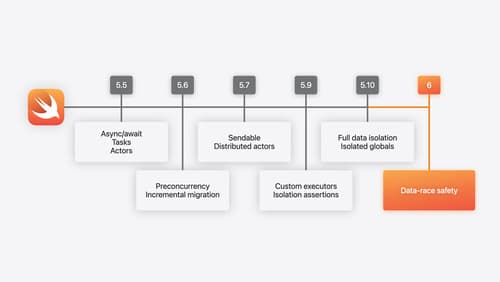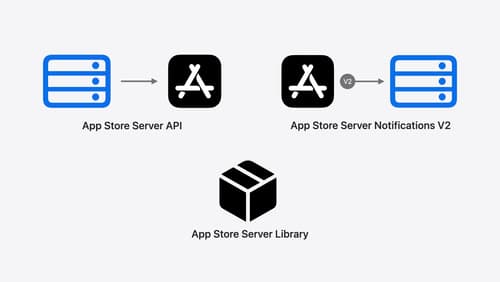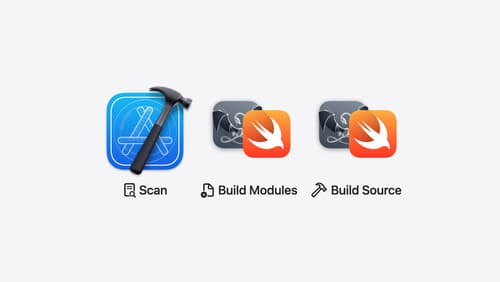application dylib
Asked on 2024-09-26
1 search
It seems like you're interested in the topic of application dylibs. While the provided context doesn't directly address dylibs, it does cover related topics such as Swift's cross-compilation capabilities, module management, and improvements in build processes. Here are some relevant insights from the sessions:
-
Cross Compilation in Swift: The session "What’s new in Swift" discusses cross-compiling Swift applications to run on Linux, which involves creating statically linked binaries. This process ensures that the application can run on any Linux machine without needing an additional runtime. This might be relevant if you're considering how dylibs or similar components are managed across different platforms. You can learn more about this in the Cross compilation to Linux section.
-
Explicitly Built Modules: The session "Demystify explicitly built modules" explains how modules are managed in Swift and Objective-C, which can be related to how dylibs are structured and used. Explicitly built modules improve build reliability and speed by making module builds explicit and parallelizable. This might be useful if you're looking into how application components are compiled and linked. More details can be found in the Using modules section.
If you have more specific questions about dylibs or related topics, feel free to ask!

What’s new in Swift
Join us for an update on Swift. We’ll briefly go through a history of Swift over the past decade, and show you how the community has grown through workgroups, expanded the package ecosystem, and increased platform support. We’ll introduce you to a new language mode that achieves data-race safety by default, and a language subset that lets you run Swift on highly constrained systems. We’ll also explore some language updates including noncopyable types, typed throws, and improved C++ interoperability.

Explore App Store server APIs for In-App Purchase
Learn how to leverage your server to build great In-App Purchase experiences with the latest updates to the App Store Server API, App Store Server Notifications, and the open source App Store Server Library. After a recap of current APIs, we’ll introduce updated endpoint functionality, new transaction fields, and a new notification type. We’ll also discuss best practices for the purchase lifecycle, delivering content, and targeting offers, so you can become a server power user.

Demystify explicitly built modules
Explore how builds are changing in Xcode 16 with explicitly built modules. Discover how modules are used to build your code, how explicitly built modules improve transparency in compilation tasks, and how you can optimize your build by sharing modules across targets.
